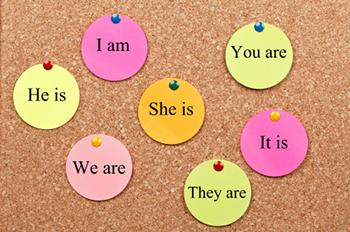
But confident teachers can enable students to use their grammar knowledge to help them craft and create their writing and positively support children's development as writers, phys.org wrote.
Teachers concentrate on making sure primary-aged pupils can remember and repeat simple explanations — such as "a verb is a doing word; an adjective is a describing word — during grammar lessons rather than helping them understand key ideas. This hinders their learning and leaves some pupils only able to repeat these definitions rather than understanding what they mean.
A new study highlights how these activities often have no other purpose other than to provide evidence for national testing, yet children don't often understand the feedback they are given about their writing produced for this purpose.
Experts from the University of Exeter have called for teachers to be given more support to stop grammar teaching becoming an ‘abstract and exotic’ part of the curriculum and help them make it a natural part of lessons.
Academics working on the Economic and Social Research Council-funded project, called Writing Conversations, set out to explore in depth the relationship between children's grammatical knowledge and their development as writers, as well as the impact of grammar teaching on children's learning and writing. They tracked all the pupils in two primary classes and two secondary classes, each in four different schools in Devon, over three years.
They spent time in school talking to children about their understanding of grammar and about their writing to analyze the relationship between what the children had been taught and what they had learned. Where teachers addressed the grammatical concept carefully, and then linked the grammar structure to what it does in a text, children were much better able to use grammar knowledge to make effective choices as writers.
The new National Curriculum, introduced in 2014, has an increased emphasis on grammar. Children in their last year of primary school now also have to take the Spelling, Grammar and Punctuation test. But teachers are given different messages about why children should learn grammar. They are told it is to help children learn how to accurately structure sentences, but also that it is to help them make effective language choices in their writing.
Researchers found children are now more confident in identifying grammatical structures since changes to the curriculum, but this is often knowledge learnt for tests or teacher assessments and children find it harder to describe how these structures affect their writing.
Dr. Helen Lines, one of the researchers on the project, said: "Our study shows if teachers explain grammar in a more practical and natural way regularly, other than something separate or abstract from other lessons, children will better understand.
"Over-focusing on labelling and identifying grammatical terms is not helpful and the government and teachers need to think again about how children can gain a more sophisticated and enriched understanding of what grammar is. They need more space in the curriculum for children to express both their understandings and their confusions."
Professor Debra Myhill, who led the project, said: "Children's writing does become more sophisticated as they become older, but very often they can use a particular grammatical structure in their writing before they can describe what they have done. We don't yet know if this is developmental, or linked to how students are taught. But what is clear is that teachers who themselves are comfortable with grammar are better able to handle children's confusions and help them become more thoughtful writers."
